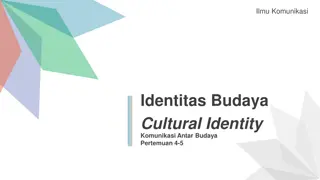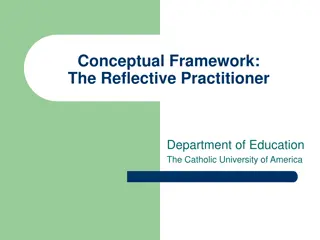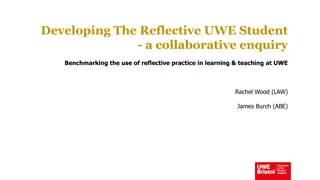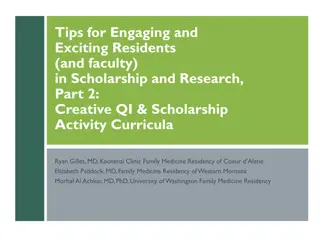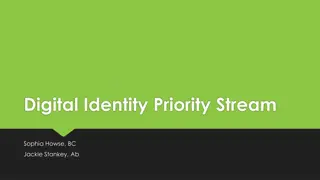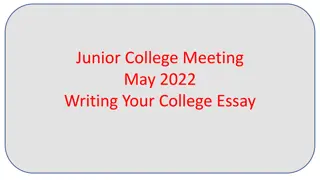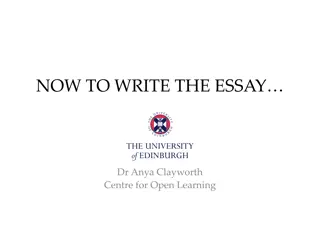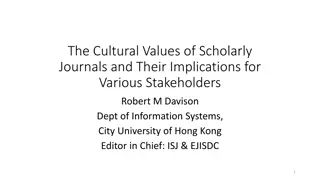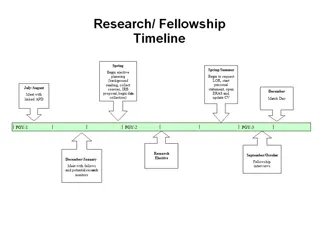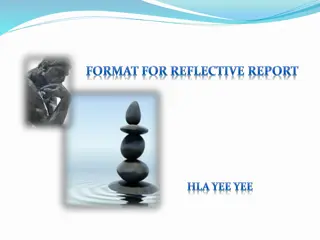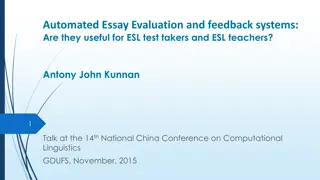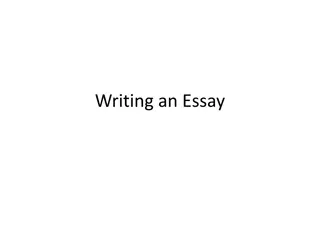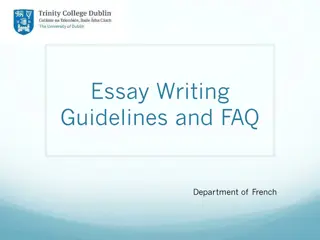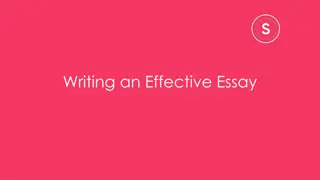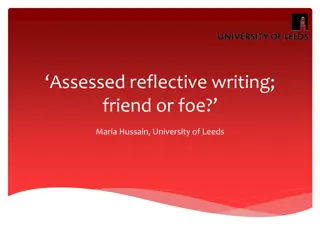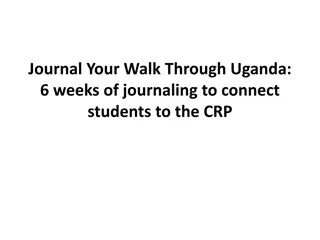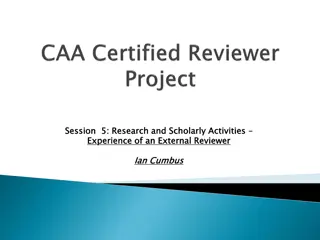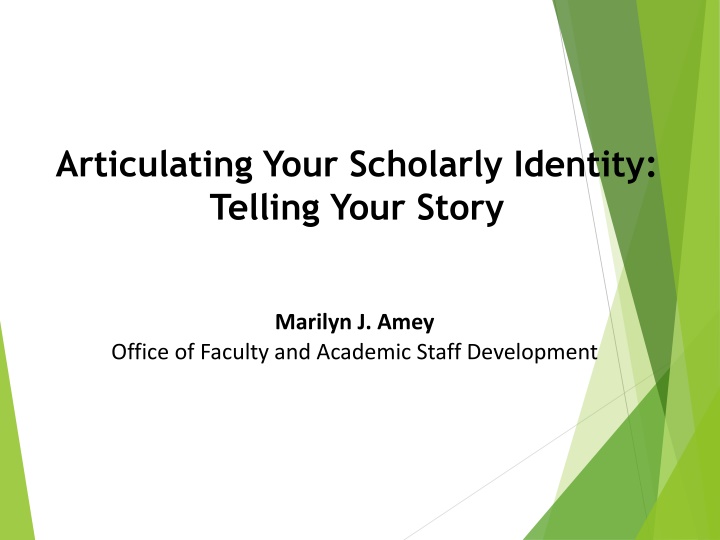
Crafting Your Scholarly Identity: Documentation and Reflection
Discover the importance of documenting your scholarly work in the academic realm and creating a reflective essay to showcase your journey, impact, and future aspirations. Learn how to organize, store, and demonstrate the significance of your academic endeavors, and how to effectively communicate your scholarly identity.
Download Presentation

Please find below an Image/Link to download the presentation.
The content on the website is provided AS IS for your information and personal use only. It may not be sold, licensed, or shared on other websites without obtaining consent from the author. If you encounter any issues during the download, it is possible that the publisher has removed the file from their server.
You are allowed to download the files provided on this website for personal or commercial use, subject to the condition that they are used lawfully. All files are the property of their respective owners.
The content on the website is provided AS IS for your information and personal use only. It may not be sold, licensed, or shared on other websites without obtaining consent from the author.
E N D
Presentation Transcript
Articulating Your Scholarly Identity: Telling Your Story Marilyn J. Amey Office of Faculty and Academic Staff Development
What should you document? All aspects of your work the components directly related to your assigned duties and additional responsibilities Typically, organize your documents around three key categories: Teaching/advising Research/scholarship Service and/or Outreach and/or Engagement The connections across the components of your work
What are the uses of your documentation? Annual and promotion reviews Easy access of information for your own use Sharing with colleagues or those who request information including for forms of recognition Self-reflection on your progress and impact over time Connecting your work to larger professional and institutional goals/values e.g., DEI, student success
How to document your work? Establish a system for record-keeping electronic or paper Be consistent, systematic, and organized Archive each significant event and benchmark in your professional career Seek and plan ways to demonstrate impact
What to Accomplish in the Reflective Essay: (Slide 1 of 2) Describe who you are as a scholar Explain the context of your work (e.g., change in funder priorities, COVID impact, constituent needs) Discuss why your work is important and to whom; consider how your work contributes to university/college/department missions including DEI Demonstrate the integration across your work (show how Teaching/Research/Creative Work/Service/Outreach connect in your work and make an impact)
What you need to accomplish in the Reflective Essay: (Slide 2 of 2) Show a cohesive trajectory of what you have done and where you are going; if you needed to change directions post COVID, talk about that Explain how your work to date lays a strong foundation for your plans as your career continues for your discipline, the university, and beyond Highlight the strength of your reputation, ways it is developing Show you can reflect on your work and be self-evaluative; everyone has areas for growth
Teaching: Issues for Reflection Your philosophy and approach Your intended learning outcomes for students Your teaching methods and rationale for them Approaches and innovations you developed Impact on students: outcomes assessment, unsolicited comments, creating inclusive learning environments How you interpret and respond to teaching evaluations, efforts used to improve your teaching How your teaching has changed over time and why (e.g., Covid impact, hybrid & online instruction)
Research, Scholarship & Creative Activities: Topics for Reflection Overall direction and purpose of your research Questions/issues you are addressing why are they important? The range of work involved including collaborations [peers, students] and individual activity Methodologies selected and benefits/limitations Impact: major outcomes, why the work is important, who it impacts and in what ways, how are you disseminating to reach diverse audiences who benefit Adjustments and choices made (e.g., Covid, funder priorities) Future plans and issues to be addressed
Service, Outreach, and Engagement: Topics for Reflection Overall direction and purpose of your service/outreach/engagement Rationale for selecting these areas of focus; are these ongoing or one-time engagements? In what ways does this engagement inform other areas of your work? Adjustments and choices you have made (e.g., Covid) Impact major outcomes, who is impacted, why the work is important Future directions
A Reflective Essay should not be: A summary or text version of your vita or Form for Progress and Excellence A list of projects and work Filled with jargon, acronyms, insider knowledge of journals, associations, committee roles, etc. BUT Remember this IS a chance to tell your story!
Final Thoughts Document regularly and make it easy to follow; be wary of jargon & disciplinary subtleties that will not be clear to others Remember that each person s case is unique Use your documentation as evidence for professional review and advancement, and for your own purposes As you document, reflect, plan, and strive to improve Approach documenting as part of professional practice, development and advancement tell your story
Contact Information Marilyn J. Amey Office of Faculty and Academic Staff Development amey@msu.edu

